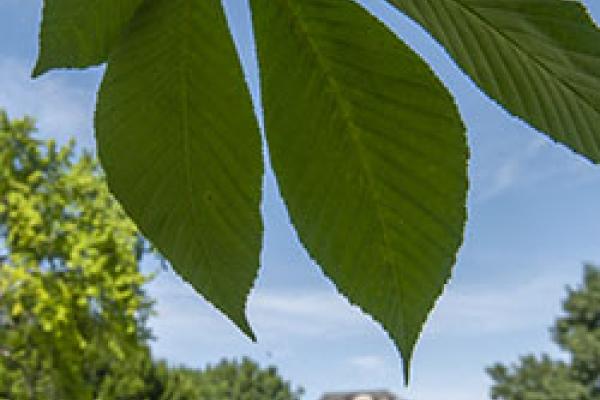
Environmental Science 7899 – Issues in Environmental Sciences
Watch the live seminar remotely via CarmenConnect
Seminar Chair: Gil Bohrer, bohrer.17@osu.edu
Seminar Coordinators: Michelle Smith, straley.23@osu.edu; Yanting Guo, zhao.1093@osu.edu
Course Requirements
This course is graded S/U. Satisfactory participation in this course includes all of the following:
- Attentive and active participation in lectures and discussion.
- Attendance at all classes, with one excused absence. If you must miss more than one class, see Dr. Bohrer.
- Advance reading for any seminars for which it is required
Invasive Algae as a Local Soil Amendment: Investigating Synergies and Tradeoffs Among Multiple Agronomic and Ecosystem Benefits
By Fred Reppun
Seaweeds are beneficial agricultural soil amendments, used in some industries for their organic compounds that stimulate beneficial soil organisms, create better soil structure, and induce growth-stimulating hormonal responses in plants. Hawaii¹s Kaneohe Bay deals with high nitrogen loading and marine algal blooms, such that conservation agencies now remove large quantities of seaweed to protect coral reefs and reduce eutrophic conditions. The proposed research will help farmers in Hawaii make use of the removed seaweed to support soil and crop health. Knowledge of the full range of potential uses, and any tradeoffs between uses, of this and other algae must be increased before farmers and coastal communities consider algae as a resource. Anaerobic digestion‹producing methane and liquid fertilizer‹has been proposed as a way to increase the value. However, while digestion retains the mineral nutrients, it may break down the organic compounds responsible for many algal species¹ stimulatory effects. The objectives of the research are therefore to 1) compare the effects of the fresh and digested seaweed on crop yield, 2) investigate possible mechanisms behind any stimulatory effects, and 3) quantify the seaweed¹s impact on soil nutrient dynamics. The study is part of a masters-level inquiry into recovery of products from algal blooms, to identify key infrastructure and information that would enable coastal communities, whether along Kaneohe or Maumee Bay, to manage eutrophic conditions while also creating a resource for local farmers.
Fred Reppun is a first-year masters student in ESGP, specializing in Agroecosystems Science. His research focuses on opportunities and constraints for farmers seeking to localize their soil inputs, and the impacts of such initiatives on agroecosystem health and resilience. Fred comes to OSU with seven years of experience working in community-based economic development and sustainable agriculture education programs for youth and adults. He received his undergraduate degree in Environmental Science and Public Policy from Harvard, where he researched environmental education programs in China.
